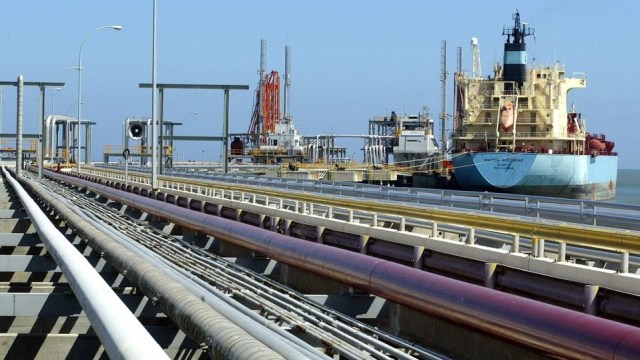
Maroil Trading, owned by shipping tycoon Wilmer Ruperti, has taken over sales of almost all Venezuela’s exports of petroleum coke, a move that could reduce sanctions risks for clients, according to documents and four sources close to the decision.
By Reuters – Marianna Parraga and Sudarshan Varadhan
Sep 21, 2022
The Geneva-based company has boosted exports and customers since signing a commercial pact with state-run oil firm PDVSA six years ago. With U.S. sanctions on Venezuela’s oil sector, Maroil has helped sustain the country’s exports of the byproduct, known as petcoke, which comes from crude upgrading and refining and is widely used by cement producers to run kilns.
At least since August, all petcoke cargoes departing from PDVSA’s Jose terminal on Venezuela’s eastern coast have been through Maroil, leaving the state oil firm to export a small volume from its Cardon refinery, according to shipping documents and two of the sources.
“Maroil has taken over the cargo handling out of Jose completely,” said a person acting as agent for customers. “For clients, this is way more efficient than dealing with PDVSA.”
Trading petcoke can be very profitable, according to documents seen by Reuters covering four months of exports.
In April, PDVSA billed Maroil $45 per tonne of petcoke delivered from its Petrocedeno project, shipped on tanker Arki. A month later, a cement firm paid a reseller $220 per tonne for the cargo at arrival in India’s Jaigad port, invoices and custom documents showed.
Venezuela’s oil ministry, PDVSA and Maroil did not reply to requests for comment.
It was not immediately clear if Maroil’s commercial expansion was a permanent or temporary arrangement with PDVSA.
PETCOKE MOUNTAINS
In Jose, two heavy oil upgrading projects controlled by PDVSA, Petro San Felix and Petrocedeno, produce and store petroleum coke.
Environmental groups and local communities in Venezuela have been pressuring PDVSA to get rid of open-pit mountains of petcoke, which release carbon particles to the environment similar to coal slag. This pressure led the state oil company to try several times to outsource transportation, shipping and trading until a $138 million contract with Maroil was signed in 2016.
From January through mid-September, Venezuela exported a total of 2.19 million tonnes of oil byproducts, 70% of which was petroleum coke, a significant increase from the 1.03 million tonnes of 2020 and the 1.75 million tonnes of 2021, according to Refinitiv Eikon tanker tracking and shipping documents.
Most exports of petcoke this year have been sold by Maroil to European and Asian destinations. PDVSA has shipped between one and three cargoes per month mostly to China and Cuba, sometimes offering steep discounts over loading delays and poor product quality, according to the documents and two of the sources.
A tonne of petcoke is more expensive than coal, and produces more energy when burned. It generally is not used as a fuel because of emissions, but is widely used by the cement industry as its sulphur dioxide emissions are absorbed by limestone.
SANCTION SCRAMBLE
Indian firms this year have been big buyers of Venezuelan petcoke as the Asian nation looks for inexpensive fuel to power industries amid high coal prices.
Shimsupa GmBH, a Germany-headquartered trading firm, has an exclusive arrangement with Maroil to sell Venezuelan petcoke in India, Pakistan and Bangladesh, the company said.
Resellers of Venezuelan petcoke originally supplied by Maroil say the cargoes are free of penalties since, as opposed to PDVSA, Maroil has not been blacklisted by the U.S. Treasury Department.
…
Read More: Reuters – EXCLUSIVE Maroil takes over most of Venezuela’s petroleum coke trading
…